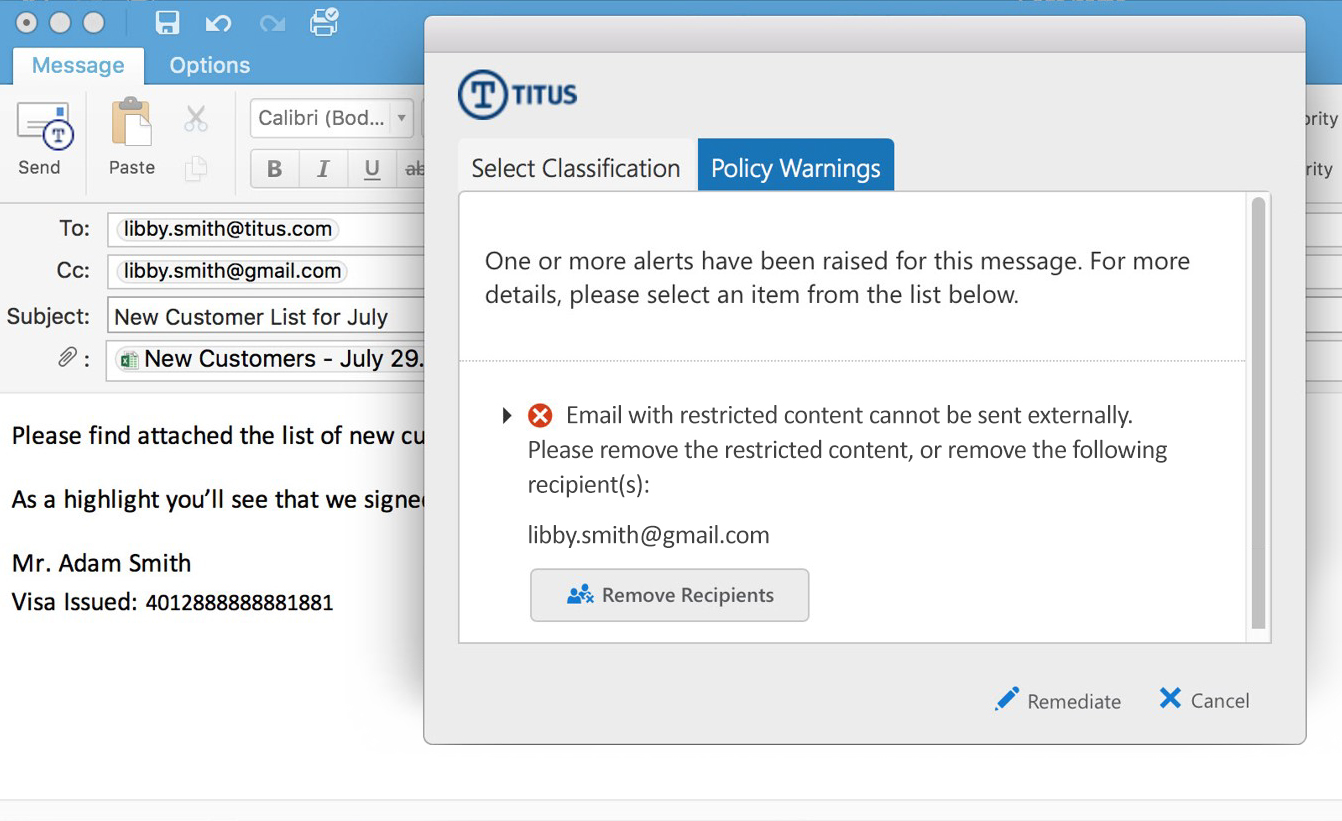Ottawa-based Titus wants to help protect every aspect of business, and they have taken one more step toward that goal with new updates to the Titus Classification Suite.
The Titus Classification Suite allows companies to classify, protect, and share information, and meet regulatory compliance requirements by identifying and securing unstructured data. Titus involves end users in classifying and protecting sensitive information in emails, documents, and other file types in order to enhance data loss prevention on-premise and in the cloud.

Tim Upton
In order to accomplish this, Titus promotes a culture of security within companies themselves. “By classifying the data at the point of creation, the person who creates [the information] gets to help decide what type of classification it receives alongside automatic and guided information provided by the classification suite itself,” said Titus founder and CEO, Tim Upton, in an interview with CDN. This makes users within the system more accountable, but also provides them with more information and guidance to prevent any leaks or mistakes.
“If you classify an email and tag it as information only for internal use, then you could send it around to peers within the company who have access. The Classification Suite would automatically prevent you from accidentally sending this email to someone within the company who did not have access to that level of classification, or someone outside the company like a member of the press,” Upton explained.
The classification allows the removal of human error and increases human awareness and education by understanding the levels of classification. “We founded [Titus] on the premise that you can’t protect anything if you don’t know what you have. When you don’t know what you have, it’s a very hard thing to decide what security you need,” said Upton.
Further benefits to the Titus Classification Suite include:
- security awareness by applying classification labels and visual markings to email and documents
- information protection by using DLP, encryption, and other perimeter security solutions to determine what information is sensitive and how it should be protected, in addition to the automatic protection provided by Microsoft Rights Management Services
- retention management to capture retention-related metadata that can be mapped to retention codes so that organization can defensibly delete information as it goes from asset to liability.
On September 14, Titus went live with their newest update that brought the Classification Suite support to the Mac to accompany already existing support for Windows and mobile devices. As many organizations have enterprise email installations that include both Windows and Mac, the new updates aim to cover all devices of an organization. “Information is everywhere, on Windows and Mac desktops, on mobile devices, and in Cloud storage repositories. Organizations need an effective way to classify and protect their sensitive information, no matter where it is stored,” said Upton.

Titus Classification Suite now supports Mac
Additionally, Titus has partnered with Atlanta start-up, Ionic Security, by integrating the Titus Classification Suite with the Ionic Security Protection Suite. This enhances the program’s ability to classify and automatically secure sensitive email and documents for real-time protection and policy enforcement.





